Hungary follows the Netherlands in demanding an opt-out from EU migration rules after the Netherlands said it was vital to protect housing, healthcare and education for its citizens
Hungary has followed the Netherlands in demanding that the country withdraw from the EU’s mandatory migration rules in crisis situations, hoping to reduce the number of refugees entering the country.
Budapest has also vowed to ignore EU rulings on its tough border policies after judges ruled in June that the country had violated the rights of refugees.
“Drastic measures are needed to stop illegal migration,” Hungarian Minister for European Affairs Janos Boka said today.
‘The Hungarian government will join the Netherlands in asking for an opt-out from EU asylum and migration rules, if a treaty change makes this possible.’
It is expected that Hungary and the Netherlands will use any change to the EU treaty to withdraw from asylum and refugee policy.
The requests come as the political crisis surrounding the EU’s common refugee system and the Schengen area, where no one is allowed to travel, grows.
Migrants walk through a street from Keleti train station in Budapest, Hungary in September 2015 (file photo)

Hungarian Prime Minister Viktor Orban to hold a press conference on flood protection developments on September 19
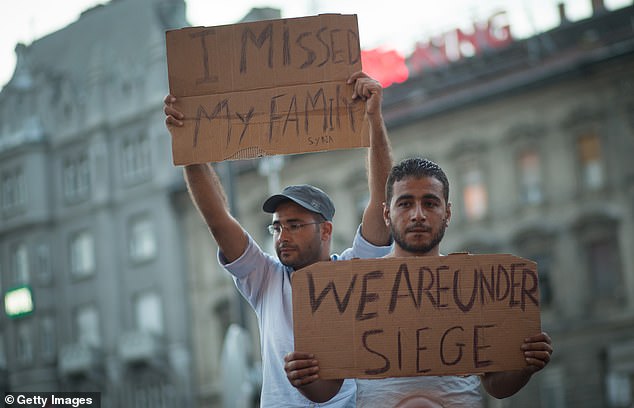
Migrants protest outside Keleti station in Budapest, which was closed to them in September 2015 (file photo)
The Netherlands today became the first EU country to demand an exemption from the increasingly unpopular rules.
The Dutch government, dominated by Geert Wilders’ far-right party, said the measure was justified because it could provide its citizens with “housing, health care and education”.
“I have just informed the European Commission that I want a migration opt-out within Europe for the Netherlands,” Dutch Migration Minister Marjolein Faber wrote in a letter to Ylva Johansson, the European Commissioner for Home Affairs.
‘We must take control of our own asylum policy again.’
However, the European Commission has already criticised the plans: ‘You cannot circumvent EU law’.
This comes as the new Dutch government, which came to power in November, plans to declare an “asylum crisis” to pave the way for tougher measures.
This includes a freeze on asylum applications and the forcible deportation of people who do not have the right to reside in the Netherlands.
Under the proposal, refugees would only be allowed to bring family members if they had been resident for two years, had a home and had a “stable income.”
Currently, asylum seekers receive a permanent residence permit after five years.
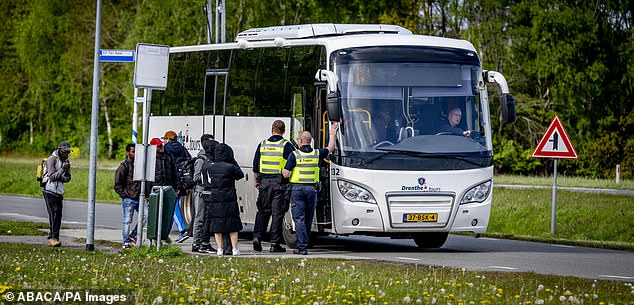
Asylum seekers and refugees at a registration center in Ter Apel, Netherlands in April (file photo)
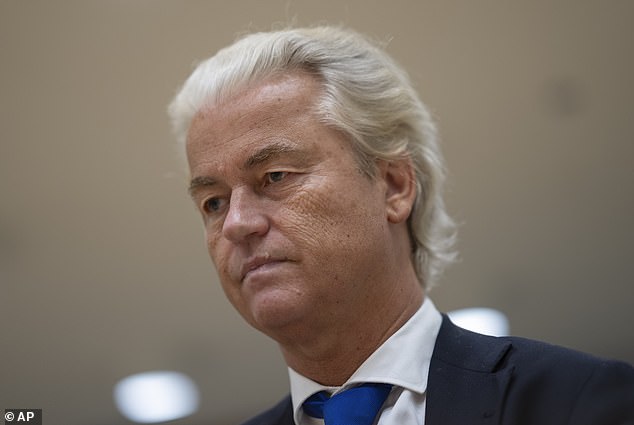
Geert Wilders, who leads a far-right party that currently dominates the Dutch government
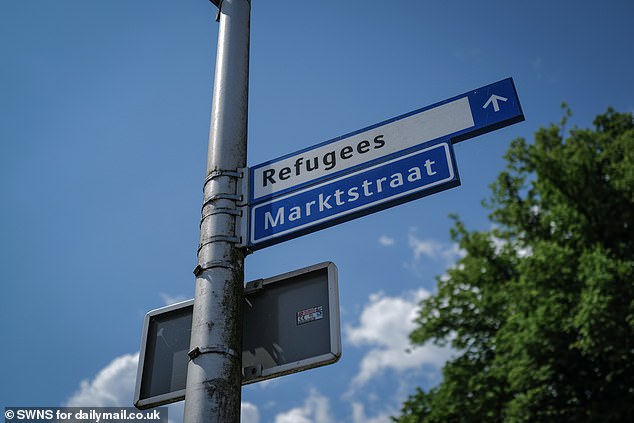
Signs indicate arrival of new refugees in Ter Apel, Netherlands (archive image)
Earlier this month, Germany announced it would introduce controls at all land borders to tackle the “continuing burden” of migration and “Islamic terrorism”.
Interior Minister Nancy Faeser told the EU the country had no choice but to introduce strict border controls to prevent illegal entry.
The policy marked a reversal from her position last month, when she refused to extend strict controls first introduced last year at Germany’s borders with Poland, the Czech Republic and Switzerland.
These rules have already led to more than 30,000 people being turned back at the borders since mid-October last year.
Concerns about immigration have become increasingly prominent in German politics, particularly following a series of attacks by Islamists, most recently in Solingen.
The German government is also under increasing pressure to respond to migration, as support for the right-wing AfD party rises rapidly.
And late last month, the German police union announced that Schengen was only worsening Germany’s security crisis and should be lifted immediately.
Manuel Ostermann, deputy chairman of the Federal Police Union, has strongly protested against Schengen, the idiotic border-free EU plan, in an interview with the magazine Focus.
‘The crisis in German security is a direct consequence of the ineffective Schengen policy. Schengen’s inability to manage migration effectively has put Germany’s security at risk.’
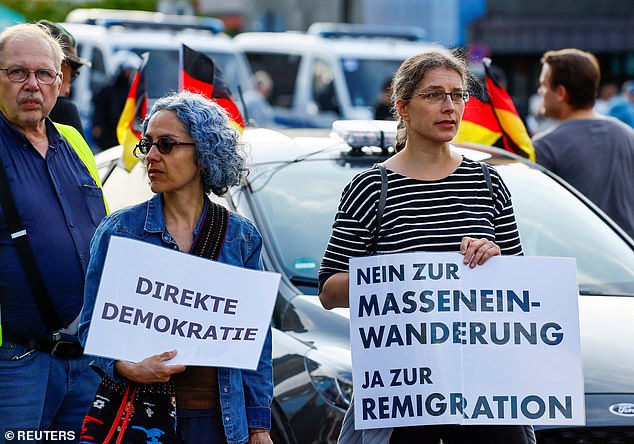
People hold up banners reading ‘Direct democracy’ and ‘No to mass immigration, yes to remigration’ as far-right protesters march through the streets of Solingen

Nancy Faeser of the struggling Social Democratic Party (SPD) is to impose temporary border controls at all national land borders
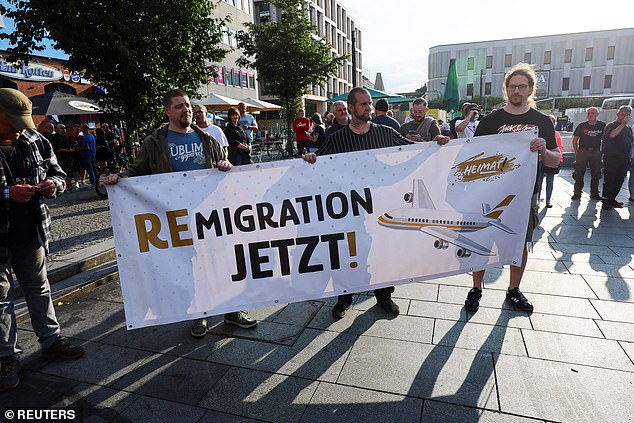
Far-right protesters hold a banner reading “Remigration Now” as they march through the streets of Solingen, following a stabbing, on August 26

Teenage girls dressed in German flags attend an election campaign rally of the right-wing Alternative für Deutschland on May 28
‘Germany must realise that Schengen is currently failing and must either make a concerted effort to return to the current legal situation or end Schengen,’
He pointed to rising crime rates in Germany, exacerbated by the migration crisis, as evidence that Schengen is no longer viable.
He said Schengen’s open borders have made it easier for criminals to operate across Europe, which has implications for security in Germany.
‘Schengen has failed to protect Germany from the influx of criminals, making immediate action necessary.’
‘We must continue to inform our internal borders, because border controls, whose effectiveness has been proven, are no longer maintained under Schengen.
‘The failure of Schengen is evident from the increase in crime. This makes it clear that changes are needed.’
